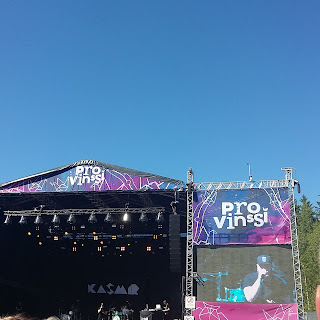tykätä, tykkään, tykkäsin, tykännyt
- Tykkäätkö sä oliiveista? - Do you like olives?
- Tykkäsitkö sä siitä taidenäyttelystä? - Did you like the artshow? (se=it, siitä=about it)
- Mä tykkään leipoa. - I like to bake.
- Mä tykkään leipomisesta. - I like baking.
pitää, pidän, pidin, pitänyt
- Pidätkö sinä oliiveista? - Do you like olives?
- Piditkö sinä siitä taidenäyttelystä? - Did you like the artshow?
- Minä pidän leipomisesta. - I like baking. (Notice that you cannot say Minä pidän leipoa, and that's why tykätä is nicer.)
Pitää also means many other things. Here are just a few examples:
- Voitko pitää mun laukkua sillä aikaa kun käyn vessassa? - Can you hold my bag while I use the bathroom?
- Pidä lujasti kiinni! - Hold on tight!
- Voit pitää sen. - You can keep it.
- Aiotko pitää puheen? - Are you going to give a speech?
- Minä en enää pidä näitä housuja. - I don't wear these pants anymore.
In addition to this, pitää is used in the necessity structure:
- Minun pitää mennä nyt. - I have to go now.
- Pitääkö teidän muuttaa? - Do you have to move?
- Mikon piti soittaa minulle kahdeksalta. - Mikko was supposed to call me at eight.








